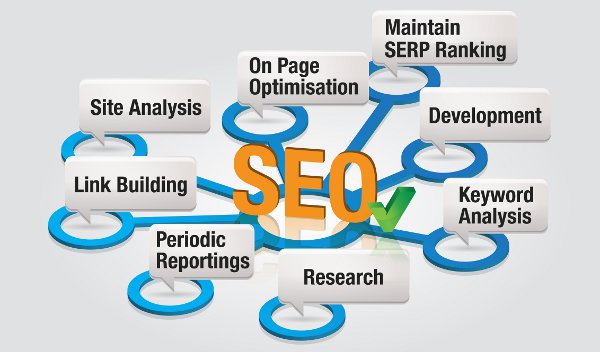Making the Most of Your SEO
Dec 05, 2013
What business doesn’t want to increase traffic to its website? More than 90 percent of people who visit websites today enter them via search engine links rather than by typing in a specific URL. Consequently, search engine optimization (SEO) presents a huge opportunity for businesses looking to increase their site traffic. Take a look at six tactics to help increase your website traffic.
 To increase website traffic, you need to employ two corresponding, yet very different methods to help your site land top rankings in the major search engines, SEO and SEM. Don’t become confused by the two terms or use them interchangeably:
To increase website traffic, you need to employ two corresponding, yet very different methods to help your site land top rankings in the major search engines, SEO and SEM. Don’t become confused by the two terms or use them interchangeably:
- Search engine optimization (SEO), is the process of improving the visibility of a website or a web page in search engines via the “natural” or un-paid (“organic” or “algorithmic”) search results using design, coding and content.
- Search engine marketing (SEM), is a form of Internet marketing that seeks to promote websites by increasing their visibility in search engine result pages through the use of paid placement, contextual advertising, and paid inclusion, effectively buying your way to the top.
Here are six tactics using SEO and SEM that can help increase your website traffic.
Tactic #1: Create SEO-friendly URLs. Use keywords that are relevant to your firm, industry, location, and the content on a particular Web page as the page URL. For example, yourdomain.com/pennsylvania-construction.html. Don’t overdo it, though. Excessively long URLs look like spam sites. A tip: Use hyphens in URLs, not underscores. Hyphens are treated as a “space,” while underscores are not.
Tactic #2: Keywords, META tags and page titles are important. Search engines rank sites based on the relevancy of the content on the site’s pages. Research your keywords (related to your product or service) because using the wrong set of terms can cause a site to rank poorly and attract browsers instead of qualified prospects.
It is vital that in the HTML code, you include a META tag page title and page description. The page title is the single most important on-page SEO factor. Effective SEO requires that the page title be unique, descriptive and contain at least one keyword relevant to the content on the page. Using a META tag page title such as “Homepage” says nothing about your firm or the content your website is providing.
Likewise, the page description should be descriptive of the content on the particular page. The meta description tag won’t boost your page ranking, but it will often appear as text below your search listing, so it should include the relevant keywords and be written to persuade searchers to click on your listing.
Keywords are important but they are not as important as META tags. Virtually no major search engine today considers the keyword META tag, but relevant keywords are still extremely valuable within the content on your Web page. What keywords are most important for your site? Tip: Look at the source code of your competitors and industry associations to determine what keywords they are using. Don’t forget to utilize Google’s free AdWords Keyword Tool.
Categories: Uncategorized
